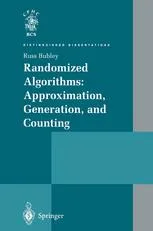Support Refhub: Together for Knowledge and Culture
Dear friends,
As you know, Refhub.ir has always been a valuable resource for accessing free and legal books, striving to make knowledge and culture available to everyone. However, due to the current situation and the ongoing war between Iran and Israel, we are facing significant challenges in maintaining our infrastructure and services.
Unfortunately, with the onset of this conflict, our revenue streams have been severely impacted, and we can no longer cover the costs of servers, developers, and storage space. We need your support to continue our activities and develop a free and efficient AI-powered e-reader for you.
To overcome this crisis, we need to raise approximately $5,000. Every user can help us with a minimum of just $1. If we are unable to gather this amount within the next two months, we will be forced to shut down our servers permanently.
Your contributions can make a significant difference in helping us get through this difficult time and continue to serve you. Your support means the world to us, and every donation, big or small, can have a significant impact on our ability to continue our mission.
You can help us through the cryptocurrency payment gateway available on our website. Every step you take is a step towards expanding knowledge and culture.
Thank you so much for your support,
The Refhub Team
Donate NowRandomized Algorithms: Approximation, Generation and Counting
4.8
Reviews from our users

You Can Ask your questions from this book's AI after Login
Each download or ask from book AI costs 2 points. To earn more free points, please visit the Points Guide Page and complete some valuable actions.Introduction to "Randomized Algorithms: Approximation, Generation, and Counting"
Randomized algorithms form one of the most versatile and impactful areas in computer science, combining the power of probability with algorithmic efficiency. This book delves deep into the theoretical and practical aspects of randomized methods, focusing particularly on their applications in approximation, sampling, and counting problems. With a rich mixture of rigorous mathematical explanations and real-world applications, this book is a valuable resource for students, researchers, and practitioners eager to explore this fascinating field.
Detailed Summary
Randomized algorithms are algorithms that use randomization as a computational tool and are crucial for solving problems across various disciplines, including computer science, physics, mathematics, and operations research. In "Randomized Algorithms: Approximation, Generation, and Counting", the topics are presented in a way that guides readers through foundational principles to advanced methods. The book offers a systematic exploration of three main areas:
- Approximation Algorithms: Harness the power of randomness to obtain near-optimal solutions for problems that are otherwise computationally intractable.
- Randomized Generation: Methods for generating random objects, such as graphs, permutations, or configurations, which fulfill specific probabilistic properties.
- Counting Algorithms: Techniques to estimate combinatorial quantities, such as counting the number of satisfying assignments, valid configurations, or feasible solutions in vast search spaces.
The book not only focuses on how randomness can provide computational advantages but also highlights situations where randomness is essential — problems where deterministic approaches fail or are infeasible. Each chapter begins with introductory material and builds to advanced topics, emphasizing clarity of explanation alongside mathematical rigor.
Key Takeaways
- Understand the core principles and techniques underpinning randomized algorithms.
- Learn how randomness can be used to approximate solutions, speed up computation, and simplify complex procedures.
- Explore case studies of randomized algorithms in action, such as graph problems, combinatorial optimization, and computational biology.
- Gain insights into mathematical tools for analyzing randomized algorithms, including probabilistic inequalities and Markov chains.
- Discover methods to design randomized algorithms for your specific computational problems.
By mastering these takeaways, readers will build a robust understanding of randomness as an algorithmic resource and its potential implications in cutting-edge research and industry practices.
Famous Quotes
Randomness is not a limitation but an enabler, offering solutions where determinism falters.
To approximate effectively is to harness uncertainty, turning impossibility into practicality.
Counting by randomness is not merely about estimation, but about transforming the intractable into the feasible.
These quotes highlight the overarching philosophy of the book: randomness is a tool, not a hindrance, and offers innovative ways to tackle computational problems that are beyond ordinary approaches.
Why This Book Matters
As computational challenges grow more complex, randomized algorithms have emerged as a vital area of research. This book bridges the gap between theory and practice, offering an accessible entry point for understanding this vibrant field. Its emphasis on approximation, generation, and counting speaks directly to problems of optimization, data analysis, and combinatorics that permeate modern science and engineering. Whether you are a student looking to deepen your knowledge or a seasoned researcher in search of advanced insights, this book offers a comprehensive guide to unlocking the potentials of randomized algorithms.
Moreover, the scope of the book ensures a balance between mathematical rigor and intuition, making it suitable for readers with a wide range of experience levels. By equipping readers with the tools and approaches necessary for designing and analyzing randomized algorithms, this book is a must-have for anyone invested in the future of computation.
Free Direct Download
Get Free Access to Download this and other Thousands of Books (Join Now)
For read this book you need PDF Reader Software like Foxit Reader


